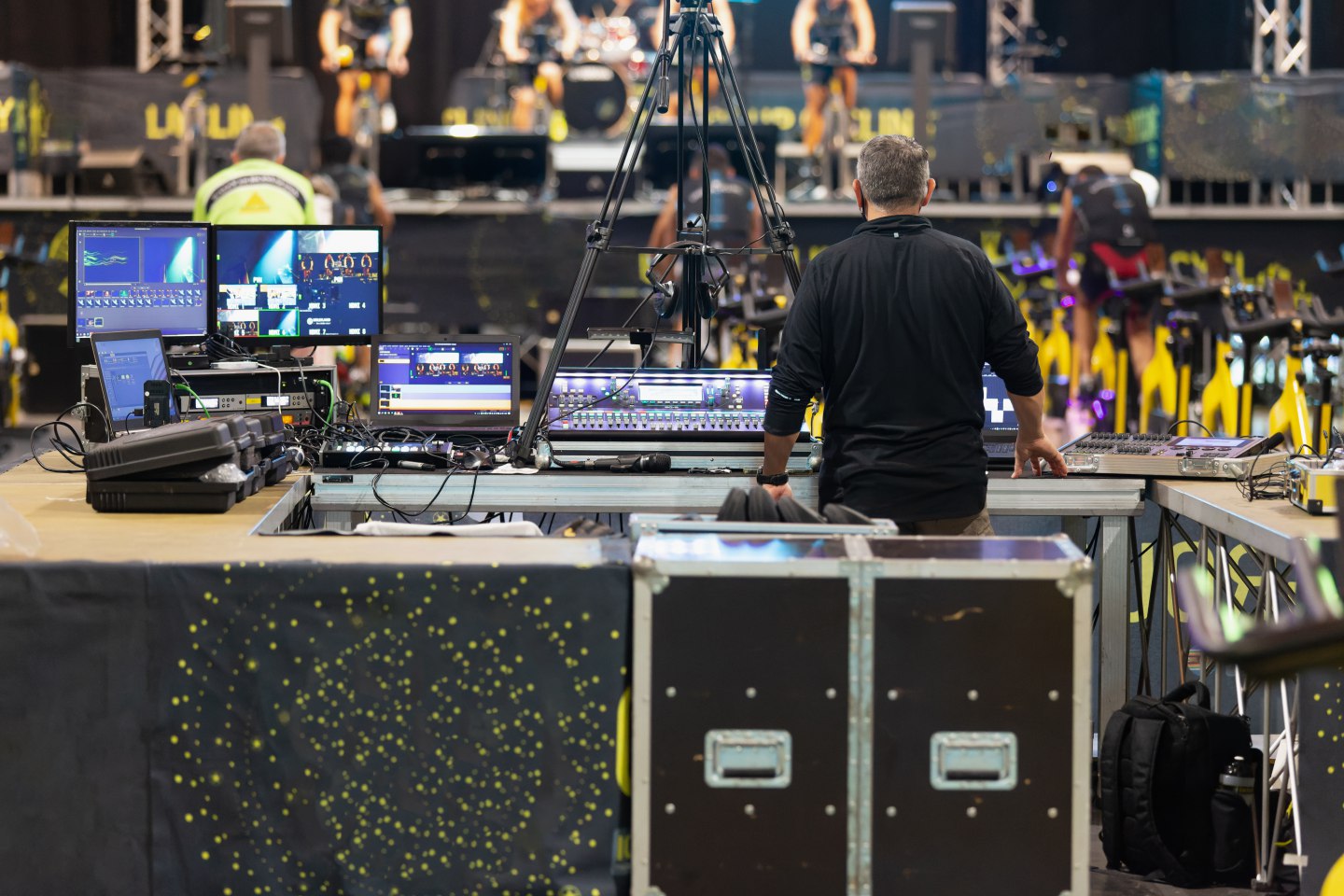Rental Reservation Software for the Event Industry

Rental booking software is revolutionizing the way event businesses manage their bookings and reservations. With the increasing demand for efficiency and ease, this software offers a practical solution for both small and large enterprises. It streamlines the process, allowing companies to handle multiple reservations seamlessly, reducing errors and saving time.
In this article, we will delve into the functionalities, benefits, and practical applications of rental reservation software, providing a comprehensive guide to help you understand its importance in today’s fast-paced market.
1. Introduction to Rental Reservation Software
2. Choosing the Right Rental Reservation Software
3. Implementing Rental Reservation Software
4. Enhancing Customer Experience
5. Future Trends in Vacation Rental Software
Introduction to Rental Reservation Software
Understanding Online Booking System
Rental reservation software, specifically designed for the event industry, is a digital tool that helps event rental businesses manage bookings and reservations efficiently. This software allows event planners and clients to schedule, track, and modify reservations for equipment, furniture, tents, décor, and other event supplies in real-time. By centralizing booking information, it minimizes double bookings and administrative errors.
The system can be customized to fit the unique needs of event rental businesses, allowing them to manage various rental categories, set up specific pricing structures for different event types (weddings, conferences, festivals), and even offer package deals. It offers features like automated reminders, secure payment processing, and customer communication tools, making the entire event rental process smoother and more efficient.
Understanding how this software works is crucial for event rental businesses aiming to improve their operational efficiency, streamline communication with event planners, and ultimately, provide exceptional customer service. By integrating event rental reservation software, companies can save time, reduce operational costs, and offer a best-in-class experience for their clients.
Importance of Reservation Management
Effective reservation management is a critical factor for the success of event rental businesses. Without a robust system in place, companies can face numerous challenges such as double bookings, miscommunication with event planners, lost reservations, and incorrect equipment deliveries.
These issues can lead to event delays, frustrated clients, and damage the equipment rental business's reputation. Event rental reservation software addresses these problems by providing a centralized online booking system where all event details, equipment requests, and communication are managed in real-time. This ensures that reservations are accurate and up-to-date, reducing the risk of errors and delays.
Additionally, controlling and customizing every aspect of the scheduling process, including setting clear rental periods, damage waivers, and delivery/pick-up schedules, is essential.
Efficient reservation management helps optimize inventory usage, ensuring that event equipment is rented out without overlap and maximizes profitability. It also enhances customer service by providing event planners with timely updates, order confirmations, and online portals to manage their rentals. By automating routine tasks like sending quotes and processing payments, businesses can free up valuable staff time to focus on providing personalized support and expert advice to event planners.
In essence, strong reservation management software is essential for maintaining operational efficiency, fostering trust with event planners, and ensuring a successful event experience for their clients.
Key Features and Benefits
Event rental reservation software comes packed with features designed to streamline the event booking process and improve communication between event planners and rental companies. One of the key features is real-time availability and inventory tracking of specific items (tables, chairs, lighting, etc.), which helps prevent double bookings and ensures accurate scheduling for events. Automated reminders and notifications keep event planners informed about upcoming reservations, delivery and maintenance schedules, and return deadlines, reducing the risk of missed deliveries or late equipment returns.
Additionally, the software can be integrated with online event planning platforms, allowing seamless booking and management of rentals directly within the planner's workflow. Secure payment processing allows for efficient transactions, while detailed reporting tools provide valuable insights into rental trends, popular equipment, and customer preferences.
The benefits of using event rental reservation software extend far beyond operational efficiency. By automating repetitive tasks like sending quotes and managing bookings, businesses can save time and reduce labor costs. The software enhances customer satisfaction by offering a user-friendly booking experience, improved communication tools, and a centralized platform for managing all event rental needs. Customizable features allow businesses to tailor the software to their specific inventory, pricing structures, and service offerings.
Overall, event rental reservation software not only improves internal processes but also contributes to a more efficient and collaborative experience for event planners, ultimately leading to increased business growth and profitability.
Choosing the Right Rental Reservation Software
Factors to Consider for Rental Businesses
Selecting the right rental reservation software requires careful consideration of several factors. Firstly, assess the software’s scalability to ensure it can grow with your business. A solution that works for a small operation might not be adequate as your business expands. Secondly, look at the software’s integration capabilities. It should seamlessly integrate with your existing systems, such as accounting and customer relationship management (CRM) tools.
Additionally, it should offer options to embed a booking widget directly into an existing website or use plugins and API integrations for popular content management systems like WordPress, Joomla, and Drupal.
User-friendliness is another crucial factor. The software should have an intuitive interface that is easy for staff to navigate, minimizing the learning curve. It should also allow businesses to easily manage online bookings and reservations directly through their own website. Additionally, consider the level of customer support offered by the software provider. Responsive and effective support can make a significant difference in resolving issues quickly.
Finally, evaluate the cost. While it’s tempting to choose the least expensive option, ensure that it offers the features and reliability you need. Balancing cost with functionality and support will help you make an informed decision.
Comparing Popular Options
When comparing popular rental reservation software options, it’s essential to focus on features, pricing, and user reviews. Some well-known platforms include Rentman, EZRentOut, and Booqable, each offering unique strengths in rental software.
Rentman is praised for its user-friendly interface and comprehensive feature set, making it suitable for various rental businesses. It provides real-time inventory management, intuitive equipment tracking, and robust reporting tools.
EZRentOut stands out for its integration capabilities with other business systems, such as QuickBooks and Salesforce, which can streamline operations. It also offers advanced inventory management, making it ideal for businesses with a large number of assets. This makes it a preferred choice among rental companies involved in equipment, car, bike, and event rentals.
Booqable, on the other hand, is known for its customizable booking system and excellent customer support. It’s particularly favored by small to medium-sized enterprises looking for flexibility and reliability.
Reading user reviews and taking advantage of free trials can provide valuable insights into which software aligns best with your business needs. Comparing these aspects will help you make an informed choice.
Cost vs. Value
When choosing rental reservation software, understanding the balance between cost and value is crucial. While it’s tempting to go for the cheapest option, it's important to consider what you’re getting for your money. Low-cost solutions might lack essential features or reliable customer support, leading to inefficiencies and headaches down the line.
On the other hand, higher-priced software often offers more robust features, better integration capabilities, and superior support services. These features can save time, reduce errors, and improve customer satisfaction, ultimately providing a better return on investment.
Consider what your business truly needs. If advanced reporting, automated reminders, and seamless integrations with party systems are critical for your operations, it might be worth investing in a more comprehensive solution. Moreover, some providers offer scalable pricing plans, allowing you to start with a basic package and upgrade as your business grows. Evaluating both cost and value ensures you make a smart investment that meets your long-term needs.
Implementing Rental Reservation Software
Steps to Successful Implementation
Successfully implementing rental reservation software involves several key steps. First, conduct a thorough needs assessment to identify the features and capabilities your business requires. For equipment rental businesses, this means considering the unique demands and requirements specific to equipment rentals. This will help you choose the right software that aligns with your operational goals.
Next, develop a detailed implementation plan. This plan should include timelines, responsibilities, and milestones to keep the project on track. Involve key stakeholders from different departments to ensure the software meets the needs of all users.
Training is also crucial. Provide comprehensive training sessions for your staff to familiarize them with the new system. This will minimize the learning curve and ensure a smooth transition.
Additionally, test the software in a controlled environment before full-scale deployment. This step helps identify any issues that need to be addressed.
Finally, establish a support system for ongoing maintenance and troubleshooting. Regular updates and feedback loops will ensure the software continues to meet your business needs effectively.
Training Your Team
Training your team is a critical step in implementing rental reservation software. Start by organizing comprehensive training sessions that cover all aspects of the software. Use a mix of hands-on workshops, video tutorials, and written guides to cater to different learning styles.
Focus on practical applications, showing staff how to perform daily tasks such as making and modifying reservations, generating reports, and handling customer inquiries through the software. Interactive sessions where employees can practice using the software in real-world scenarios can be particularly effective.
Encourage questions and provide clear, concise answers to ensure everyone understands the new system. Additionally, assign superusers or champions within the team who can provide ongoing support and act as go-to resources for their colleagues.
Regular follow-up training and refreshers can help reinforce learning and keep everyone updated on new features or changes in the software. Proper training ensures that your team can use the software efficiently, leading to smoother operations and better customer service.
Common Challenges and Solutions in Inventory Management
Implementing rental reservation software can come with its share of challenges, but understanding these issues and their solutions can ease the transition. One common challenge is resistance to change from employees. To address this, involve staff early in the free plan selection process and provide thorough training to help them feel comfortable with the new system.
Another issue is data migration. Transferring data from old systems to new software can be complex. Ensure data integrity by performing thorough checks and using reliable data migration tools. It may also be helpful to work closely with the software provider during this phase.
Technical glitches can also occur during implementation. To mitigate this, conduct extensive testing in a controlled environment before going live. This allows you to identify and fix issues beforehand.
Lastly, maintaining consistent customer service during the transition is crucial. Keep customers informed about the new system and offer additional support if needed. Addressing these challenges proactively ensures a smoother implementation process.
Enhancing Customer Experience
Streamlining Booking Processes
Streamlining booking processes is essential for enhancing the customer experience in any rental business. Rental reservation software simplifies this by offering an intuitive, user-friendly interface where customers can easily make reservations online through an online booking system. Features like real-time availability tracking ensure that customers see accurate information, reducing the chances of overbooking and disappointment.
Automated confirmations and reminders keep customers informed about their upcoming appointments and reservations, minimizing no-shows and cancellations. This not only helps in maintaining a seamless operation but also builds trust with customers. Additionally, integrated payment processing allows for secure and convenient transactions, making the booking process hassle-free.
Customization options enable businesses to tailor the booking flow to meet specific customer needs, providing a personalized experience. By reducing the steps and time involved in making a reservation, rental reservation software makes the process more efficient and enjoyable for customers. This, in turn, leads to higher customer satisfaction and repeat business.
Personalizing Customer Interactions
Personalizing customer interactions is a key aspect of enhancing the customer experience. Rental reservation software can help achieve this by storing detailed customer information and preferences. This data allows businesses to tailor communications and offers to individual customers, making them feel valued and understood.
For example, automated emails and messages can be customized with the customer's name and specific details about their reservation. Additionally, the software can track customer history, enabling businesses to offer personalized recommendations based on past rentals.
Loyalty programs integrated into the software can provide targeted rewards and discounts, further enhancing the personalized experience. By using the software to monitor customer feedback and satisfaction levels, businesses can make informed adjustments to their services, addressing any issues proactively.
Overall, personalizing interactions not only improves customer satisfaction but also through revenue management fosters loyalty and encourages repeat business, positively impacting the bottom line.
Handling Feedback and Reviews
Handling feedback and reviews effectively is crucial for enhancing the customer experience and improving your rental business. Rental reservation software often includes features for collecting and managing customer feedback. Utilize these tools to encourage customers to leave reviews after their rental experience.
Promptly responding to feedback, whether positive or negative, shows customers that you value their opinions. For positive reviews, express gratitude and highlight these testimonials on your website or social media to build credibility. For negative reviews, address the concerns raised, offer solutions, and demonstrate your commitment to improvement.
Analyzing feedback can provide valuable insights into areas where your service excels and where it needs enhancement. Use this information to make data-driven decisions that elevate the customer experience. Additionally, periodic surveys can help gauge customer satisfaction and identify trends over time.
By actively managing feedback and reviews, you not only improve customer relations but also enhance your business’s reputation, leading to more sales and increased customer trust and loyalty.
Future Trends in Vacation Rental Software
AI and Automation
AI and automation are transforming the landscape of rental reservation software, promising even greater efficiency and personalization. Artificial intelligence can analyze vast amounts of data to provide actionable insights, helping businesses optimize their operations. Vacation rental software, specifically designed for vacation rental businesses, can maximize profitability, improve efficiency, and streamline the management of vacation rental properties and bookings. For instance, AI algorithms can predict booking trends, enabling better resource allocation and inventory management.
Automation takes over repetitive tasks such as sending booking confirmations, reminders, and follow-up emails, freeing up staff to focus on more strategic activities. Chatbots powered by AI can handle customer inquiries in real-time, providing instant support and enhancing customer satisfaction.
Furthermore, AI can enhance personalization by analyzing customer behavior and preferences to offer tailored recommendations and promotions. Automated analytics and reporting tools generate comprehensive reports, allowing businesses to make data-driven decisions quickly.
As these technologies continue to evolve, they will further streamline booking task management processes, improve accuracy, and elevate the overall customer experience, making AI and automation essential components of future rental reservation software solutions.
Mobile Integration
Mobile device integration is becoming increasingly important in the future of rental reservation software. As more customers rely on their smartphones for everyday tasks, offering a seamless mobile experience is crucial. Rental reservation software that includes mobile integration allows customers to make, modify, and cancel bookings directly from their mobile devices. This convenience can significantly enhance customer satisfaction and increase booking rates.
From a business perspective, mobile integration enables staff to manage reservations on the go, providing real-time updates and access to essential information. Features like push notifications can keep both customers and staff informed about important updates, such as reservation confirmations or changes.
Furthermore, mobile apps can integrate with other functionalities, such third party systems such as GPS for location-based services or mobile payment systems for quick and secure transactions. As the trend towards mobile continues to grow, ensuring that your rental reservation software is fully integrated with mobile capabilities will be key to staying competitive and meeting customer expectations.
Data Security and Privacy
Data security and privacy are paramount in the future of rental reservation software. As businesses collect and store more customer information, safeguarding this data becomes increasingly crucial. Modern rental reservation software must comply with stringent data protection regulations, such as GDPR and CCPA, to ensure customer privacy.
Encryption and secure data storage are essential features that protect sensitive information from unauthorized access. Multi-factor authentication (MFA) adds an extra layer of security, verifying user identities before granting access to the system. Regular software updates and security patches are also vital to defend against emerging threats.
Furthermore, clear privacy policies and transparent data handling practices build customer trust. Businesses should inform customers about what data is collected, how it is used, and their rights regarding their personal information.
By prioritizing data security and privacy, rental businesses can protect their customers and their reputation, ensuring a trustworthy and reliable service. This focus on security will be a key trend as technologies evolve and cyber threats become more sophisticated.
Frequently asked questions
Previous blog posts



